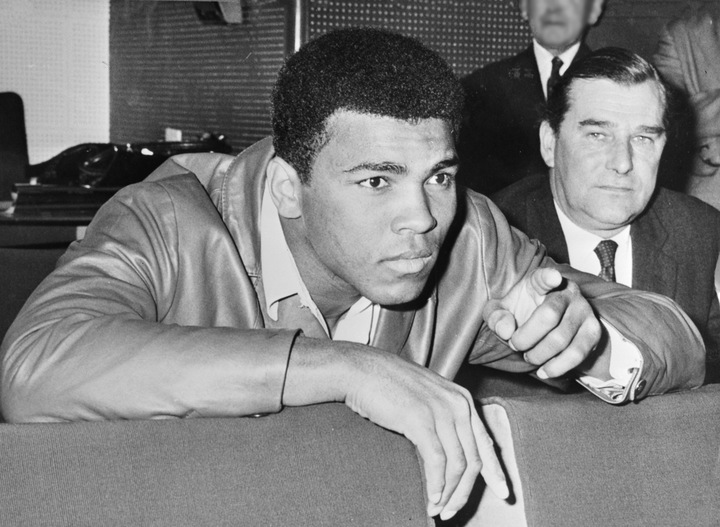A half century ago (March 22, 1967) the greatest heavyweight champion boxer in the sport’s long history was, quite disgracefully, stripped of his world title. Even worse, Muhammad Ali – who was still unashamedly being called Cassius Clay by certain people who basically knew no better – was refused the right to box, to earn a living.
It was the height of America’s most unpopular (some would say needless) war, and Ali, having been ordered to fight in Vietnam, refused and was almost universally vilified as a result. Called a traitor and other things, Ali had been transformed from a jovial, entertaining star fighter to a cowardly non-fighter. It would be years, almost four, before Ali would be exonerated and referred to by his real name by all.
Ali mark-one last fought in Madison Square Garden in New York, against a capable but at the same time over-matched (which fighter wasn’t at this time, against the near-peak, truly untouchable Ali?) Zora Folley. A relatively straightforward stoppage win later, Ali had seen his final victim go down at the hands of his blurring, powerful fists. Or so he fought.
It wasn’t until the Vietnam war (the full extent of which great US President John F. Kennedy would have spared his country from had he lived) became a wholly unpopular travesty, that public opinion turned in the unbeaten ex-champ’s favour. Finally, in late 1970, after having spent over three and-a-half-years out of the ring (basically a lifetime in the short career of a prizefighter) Ali was allowed to try and take over where he’d left off.
But Ali, now aged almost 29 (still young, especially by today’s boxing standards) and having gained a substantial amount of weight and of course a ton of ring-rust – Ali’s lightening fast hands and feet never fully returning post-exile – was a different fighter. Now hittable, prone to fatigue and just a tad slower, Ali had to dig deeper to win fights.
But what would have happened, how different would boxing history be, if Ali had not been stripped? Imagine if you will, Ali, at age 25 and sporting a perfect 28-0 record, carrying on after the Foley win. Would Joe Frazier, Ken Norton and Leon Spinks have even fought the champ, let alone defeated him? Ali might have fought on until the end of 1960s and retired at around 34-0 or 36-0, never having been forced to show the sheer heart and courage he displayed in his rough and tough rumbles with “Smokin’” Joe and “The Fighting Marine.”
Maybe Ali’s legend would not today be as celebrated if he had never faced true adversity, but it’s also possible (or likely) that “The Greatest” would never have lost a single fight had the US government not done what it did to him 50 years ago.
Still, a sadder fate awaited Folley, who passed away at the young age of just 41 in the summer of 1972; a touch over five years after his loss to Ali.
